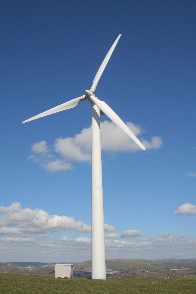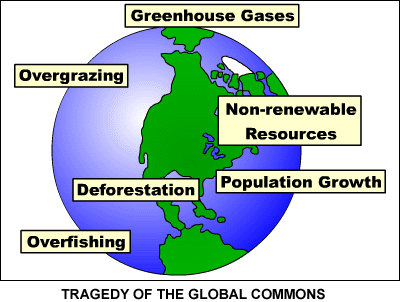The paradox of dominance is that humans are more vulnerable as we become more prevalent, more inefficient, more ignorant of what sustains our seemingly more dominant way of life.
"Norms such as treating the planet's resources as if they were limitless and assuming that the economy can grow forever, or treating human beings in other groups as if they were less important than members of one's own group, must be modified if a sustainable global society is ever to be achieved."
p. 115.
Vision | Wisdom | Impact | Imperative | Energy | Solutions | Earth-centric | Saving Capital | Errors | Case study | Total Recall | Actions
"The question–How do Norms evolve?– is at the very center of the quest to understand cultural evolution and resolve today's human predicament, the threat posed by the the weight of great human numbers coupled with our unprecedented technological capacity."
p. 115.
"If the population of India were declining, rather than rising, Indians would be competing less heavily with other animals for that nation's net primary production, the basic food supply of all animals."
"...the topic of human numbers is absent..."
The Dominant Animal, (2008). p. 207.
"To assume that economic growth in its present form cannot simply continue indefinitely, however, is to ignore civilization's progressive malady, of which the most prominent symptom is the loss of natural capital."
Ibid., p. 219.
Impact on life support = Population X Affluence X Technology
"Life operates on only 10% of the sun's energy reaching the earth's surface, that portions fixed by the photosynthesis of green plants."
Edward O. Wilson, The Diversity of Life, p. 36.
“We [human civilization] already appropriate 40% of the planet’s organic matter produced by green plants.”
E. O. Wilson, The Future of Life, 2002. P. 33.
The tragedy of blind arrogance.
evolution is one lens  ecology is another lens
ecology is another lens
To see with any depth we need two lenses.
"To every action, is an equal and consequential reaction."
The global predicament is compounded by social norms that do not perceive human behavior as undermining ecological stability, economic systems that devalue natural capital and actually subsidize waste, culturally sustained patterns of belief and actions that destroy soil fertility and pollute water to the extent that human impacts are altering entire oceans, the air, and our food supply.
(JVS, 2011)
Mistakes | Solutions | Four Rs
All social norms, such as habits of mind and behavior, are reinforced by cultural assumptions about natural elements, shared sources of wealth and public spaces. For most people a culture is a pair of glasses that allow them to see --distinguishing the immediate from the distant, or the huge from the small. But to see past our instruments into the functional core of existence can often be ignored by norms sustained by rigid cultural prescriptions we call bias. In many ways --like language-- culture has two purposes. Words can reveal as well as mask what a language may express about a situation. Similarly cultures are either blind to ecological realities, or they can embrace new rituals by which we preserve, protect, and defend the ecosystem service on which all life depends for nourishment, reproduction, or security.
Not being "planet-broke," human cultures today lack the wisdom to navigate skillfully through the shoals of consumption, the reefs of prejudice, and the waves of overpopulation without risking our ability to thrive in a healthy, humane, and hospitable world.
What is “the wisdom of biotic navigation?”
“we are spending the Earth’s natural capital, putting such a strain on natural functions…that the ability of the planet’s ecosystems to sustain future generations can no longer be taken for granted.”
Walter Reid, in Ehrlich, p. 330
“we have entered the Century of the Environment, in which the immediate future is usefully conceived as a bottleneck. Science and technology, combined with a lack of self understanding and Paleolithic obstinacy, brought us to where we are today.”
“Now science and technology, combined with foresight and moral courage, must see us through the bottleneck and out.”
E. O. Wilson, The Future of Life, 2002, p. 23
“On a more hopeful note, he continued, ‘We can never reverse the degradation of many ecosystem services over the next 50 years, but the changes in policy and practice required are substantial and not currently underway.”
“the energy problem brings together many crucial issues in the human predicament. The great speed of evolution in the technological dimension of our culture has led to the deployment of a dangerous and unsustainable global energy infrastructure.”
p. 308.
The milieu must be protected and to do so animals an vegetation are needed as significant clues to the limits of the commons we call our home on earth; the places we need to nourish our fields, orchards, fisheries and watersheds.You can't get less solar exposure than in Cumberland England, but the policy her means this homeowner uses solar electric panels.
Thus it is a new imperative because of our impacts that water, energy, air and landscape be thought of, perceived as, and treated like the whole that they are in order to nourish wildlife, fisheries and civilization alike, if we are to prosper.
Imperative – means the necessity of acting differently from what has been maladaptive behavior
“Global climate change not only modifies the environment in which organisms are evolving genetically: it can have a major impact on our human cultural evolution as well.”
p. 254.
Energy – what is needed in the least amount to achieve outcomes?
“Energy, the ability to effect change in our physical world.”
p. 290.
Saving Capital – microbes create interest on solar & geothermal accounts
landscape modification and losses in biological diversity and ecosystem integrity; hence services.
Natural capital is a slowly accumulating, revolving fund of life.
Avoiding past mistakes
"As a result, extinction is the fate of many populations and species. Indeed, the fossil record is littered with the remains of organisms that couldn't evolve rapidly enough to keep up with certain environmental changes."
p. 32.
"Our having ignored the lessons of coevolution is one reason why synthetic organic pesticides have been less successful in controlling the pests that attack crops than they might have been."
p. 49.
"The story of antibiotic resistance is similar."
Not only do bacteria often rapidly develop ways of detoxifying antibiotics; they also have evolved techniques for sharing their evolutionary novelties via plasmids, elements of DNA that can replicate and pass genes between bacterial species.
This is an important method, for example, for the spread of antibiotic resistance."
p. 50.
Reduce, reuse, recycle, & revive
Renew where possible land, air, and water.
Invest in geothermal, solar thermal, water purification, and bioremediation
How little can I effectively utilize? Not how much do I need?
Is there anything that can be utilized again?
What is discarded; is it energy infused, capable of breakdown?
Grow again those things that can replenish soils, streams, and springs.
Renew where possible: streams and stream side vegetation, ponds, and hedgerows because soil, water, forests and fisheries are a round river of life.
Invest in geothermal, solar thermal, water purification, electric power from wind, and heat capture and storage.

Electricity needs water, unless
it is generated by wind or photo-electric (solar) cells.
AND
Without electricity to pump the water, we have no "running" water.

“To keep every cog & wheel is the first precaution of intelligent tinkering.”
said Aldo Leopold. P. 310.
Nourish and replenish the Earth or perish.
Case study of salmon fisheries in the Pacific Northwest forests
Š Rivers flow from forested streams in high mountains
Š Salmon life cycles connect the high mountain streams to the deep oceans off the continental shelf.
Š Each stretch of the river plays a role in nourishing the salmon from eggs to maturity before they return to the salt-water seas.
Š Salmon spawn only once and die afterwards in the streams near to where they were laid, fertilized and hatched.
Š The enormous run of salmon in historical times nourished eagles, ospreys, bears and a host of scavengers and decomposers as they were caught swimming upstream to spawn.
Š Rain falling on forested slopes created cold, clean, and gravel-laden waters in sources of streams where salmon species reproduce best.
Š Forests of old growth trees growing in upper reaches of the salmon streams are homes to a rich array of animal, plant, and fungal species that enable the entire assemblage to thrive year after year.
Š Studies have shown that the sheer number of dead and decomposing salmon returning to their nativity streams return significant amount of nitrogen, phosphorus and sulfur to the otherwise depleted forest and its denizens.
Š Indeed, without the annual return of salmon in significant excess, the amount of nitrogen is depleted, reducing the number of inhabitants and the availability of nutrient for renewed tree growth.
The lesson: renewable forestry is really a partner of fisheries such that a sustained yield forest where timber and fish spawning can coexist leads to a renewable economy from the standpoint of long periods of time.

Americans, Europeans and Japanese people consume so much per person that any small step has huge impacts on our surroundings–
Reduce, means to use less of everything, water, electricity, paper, plastic and metals.
Reuse, means once consumed use things that can be used again for the same or similar purpose.
Composting of paper, food and grass clippings are examples of reuse.
Heat pumps and co generation are examples of reusing energy.
Recycle, means to both bring materials back to collection centers and only use post-consumer waste products.
Revive is as important as any other steps because what we do to restore water, plant vegetation that renews soils, keep forest cover, and promote water retention are all steps to reduce our contamination of arable land, aquifers, and watersheds we depend on for drinking water, food, fiber, fuels and forage.
Restore the forests and soils that sustain fisheries, farms, orchards and insects that are beneficial to our renewable use of ecosystem goods and services.
Milieu | ecology is a synthesis | Carson | Dillard | Wilson | terms